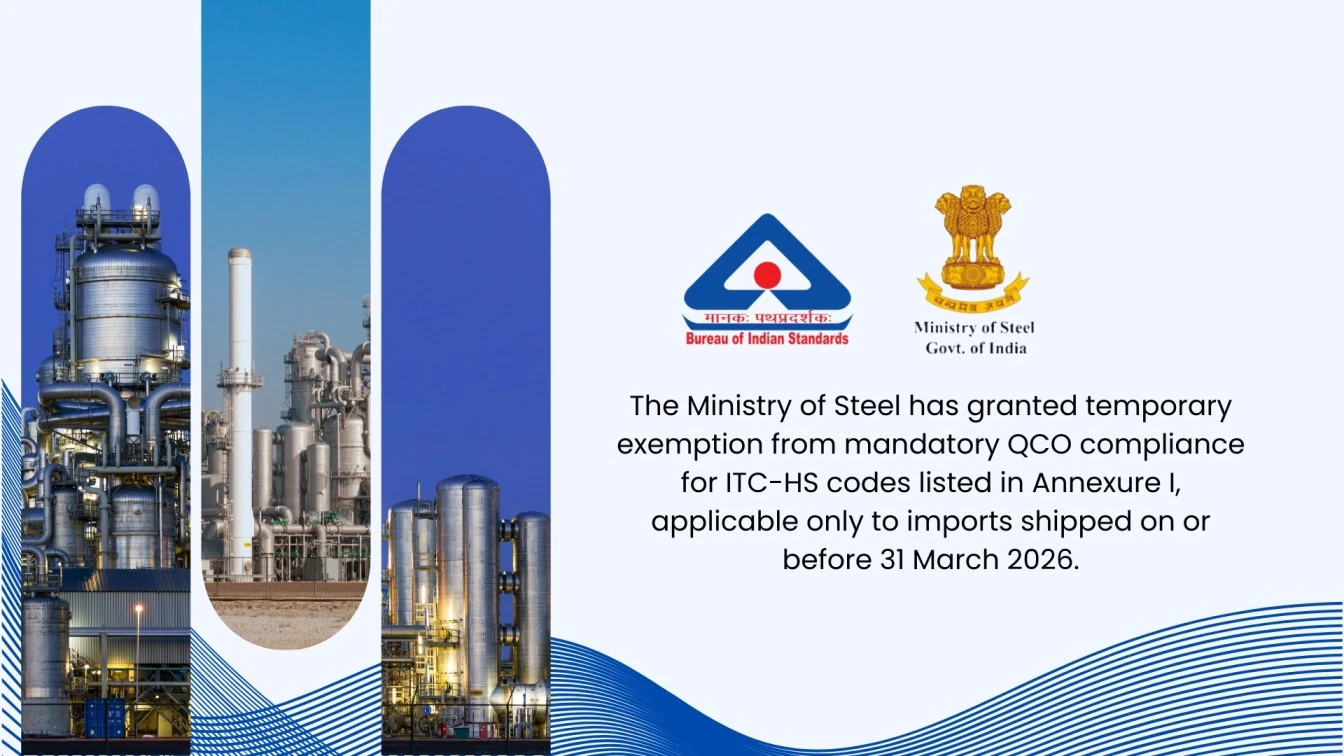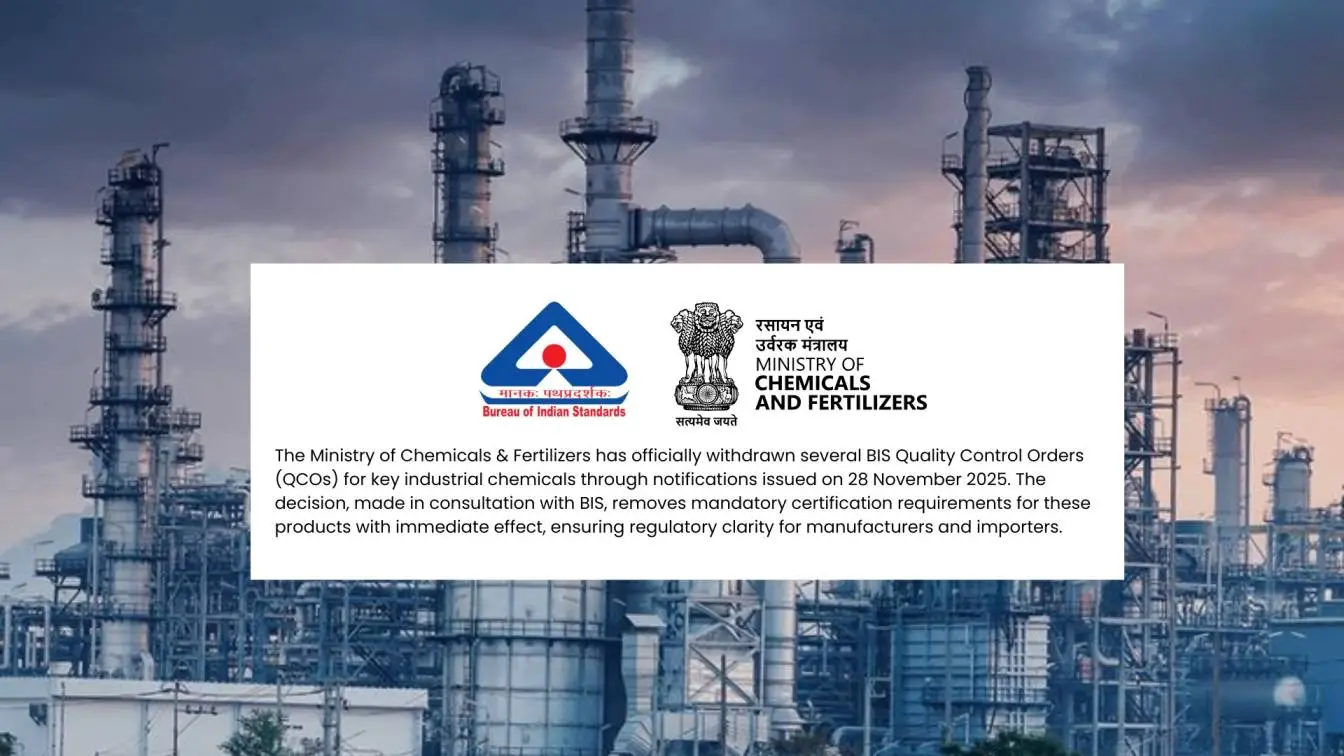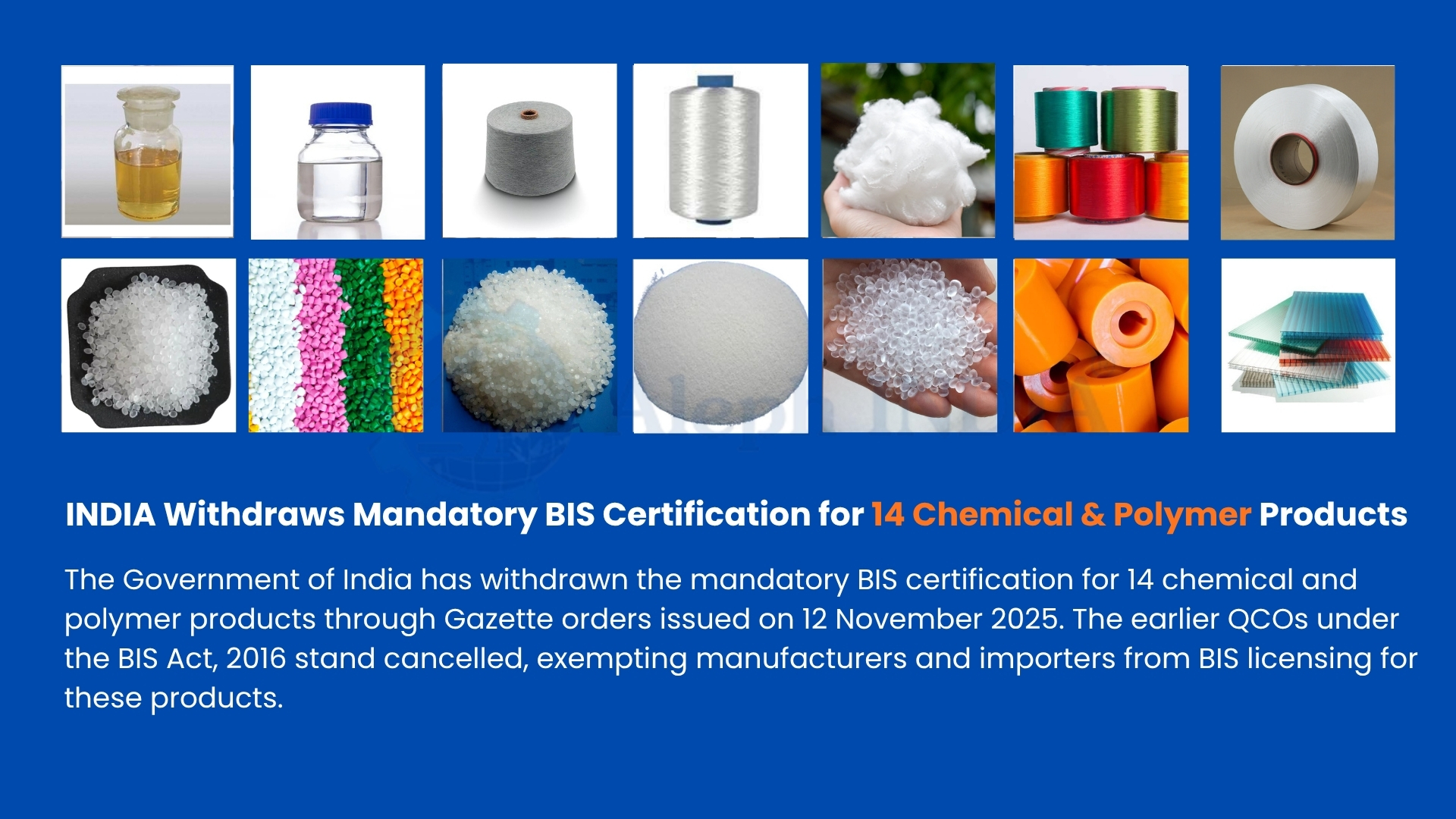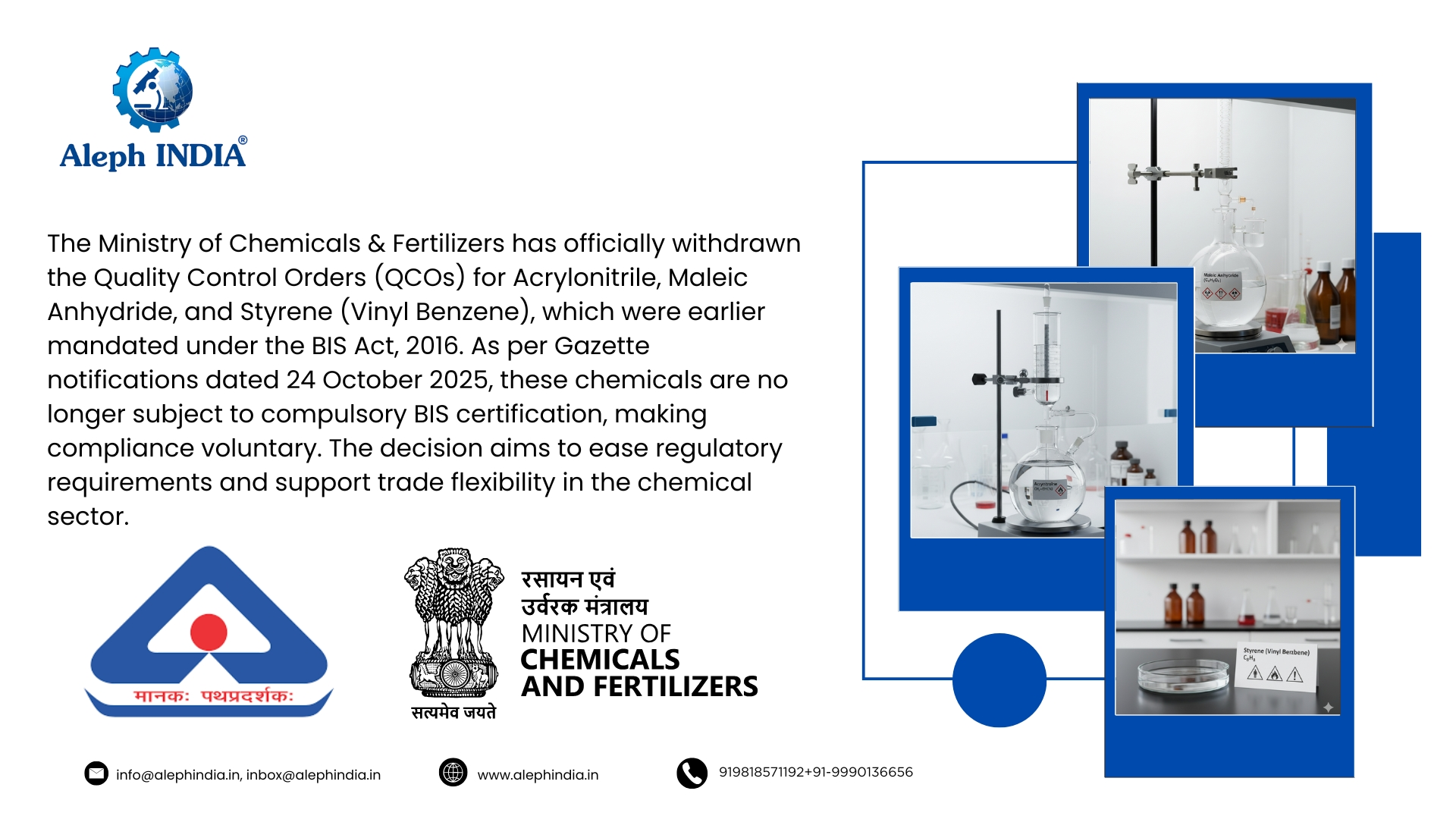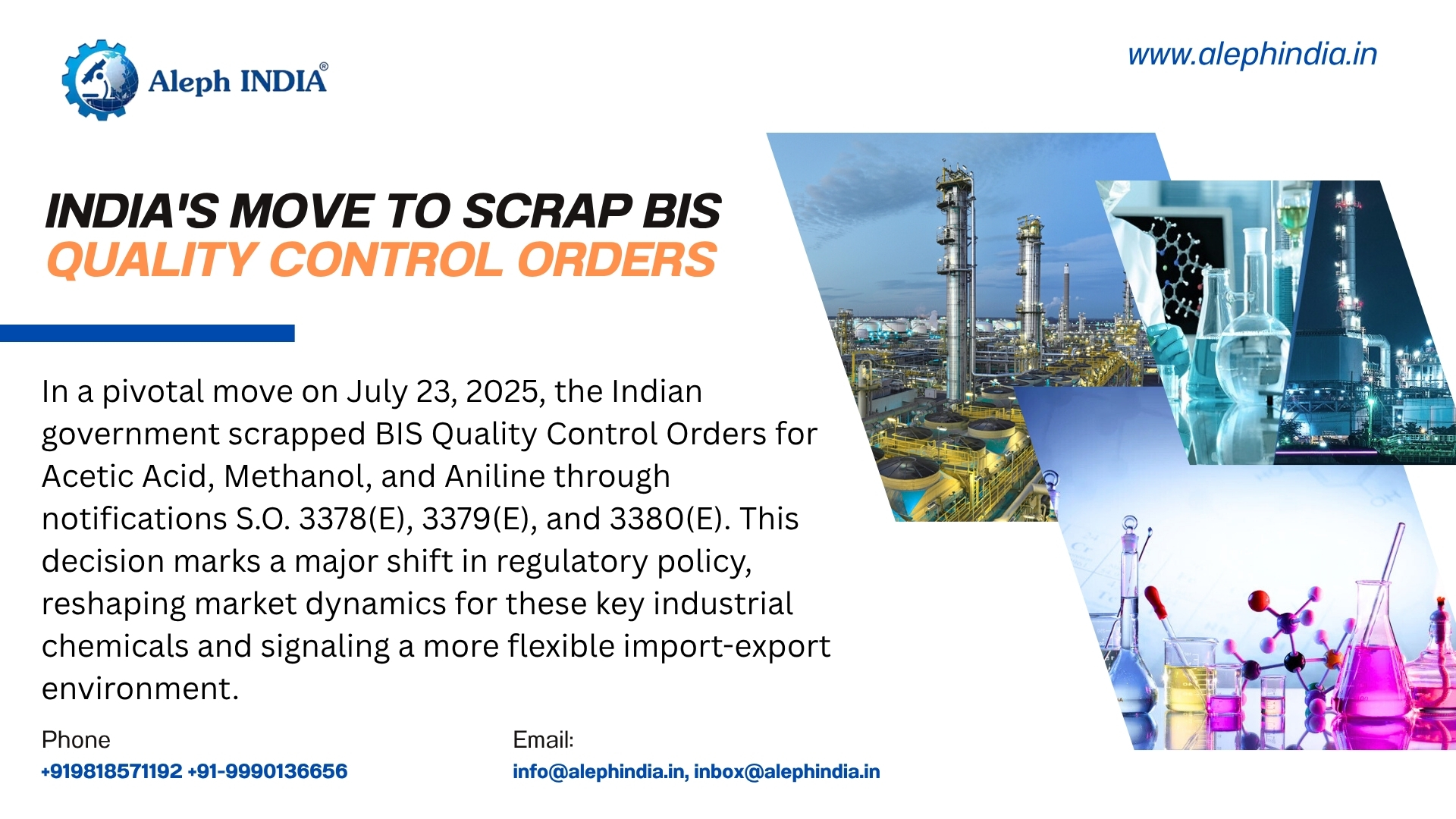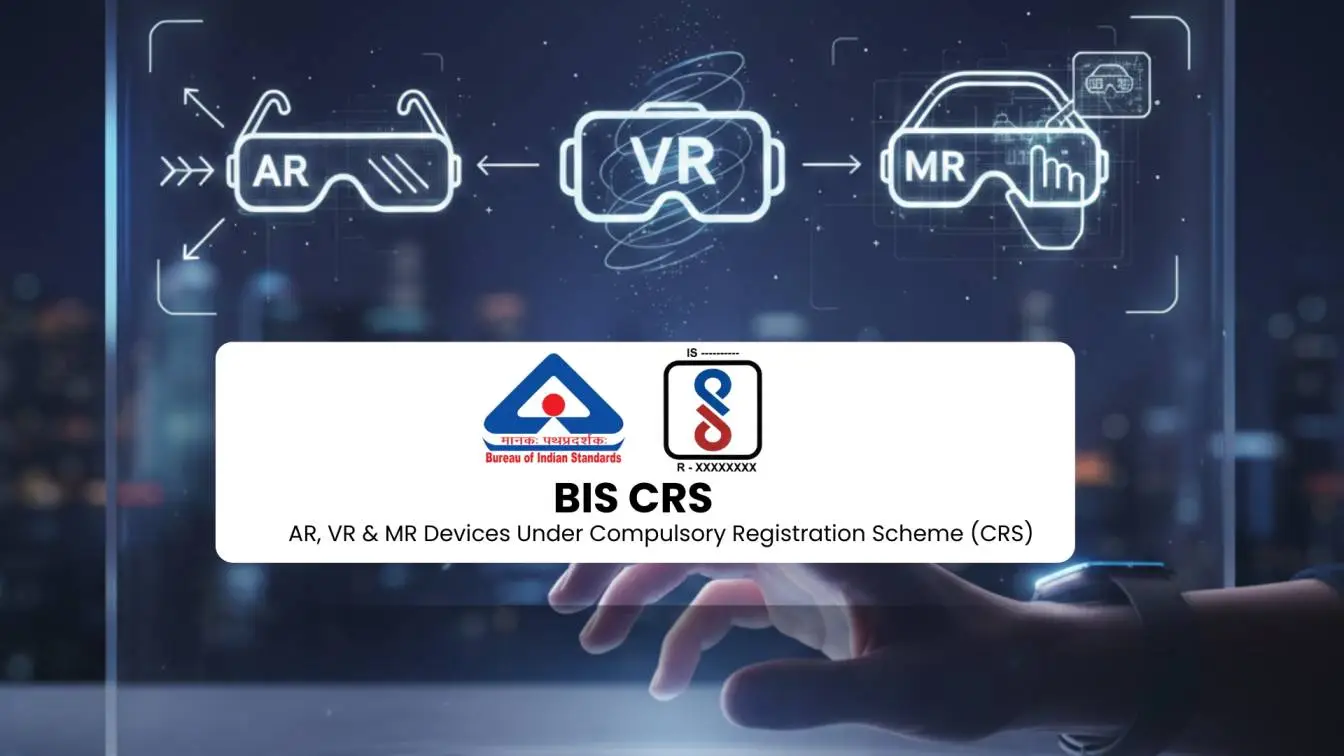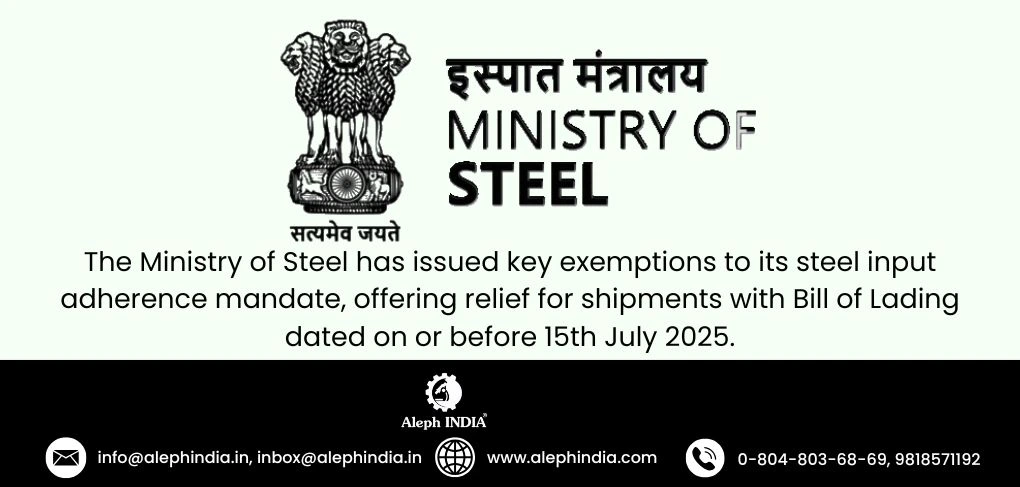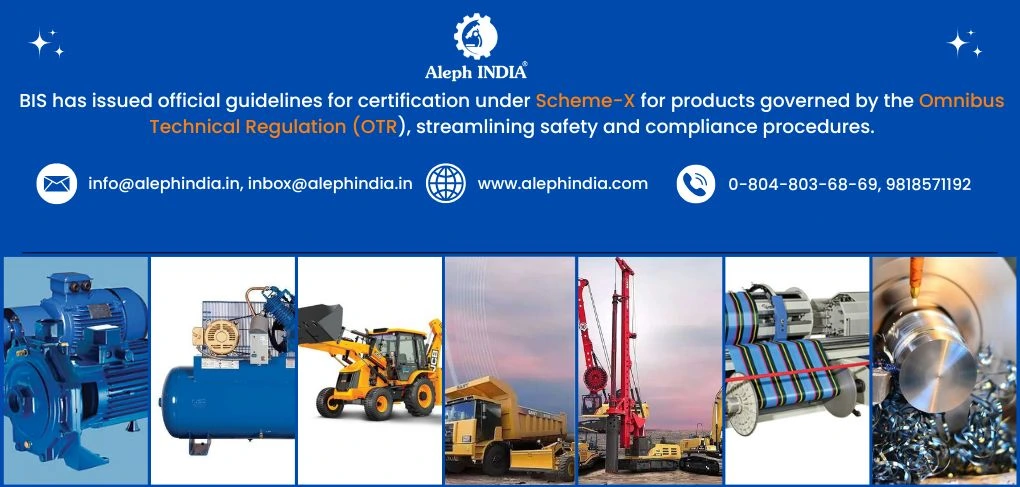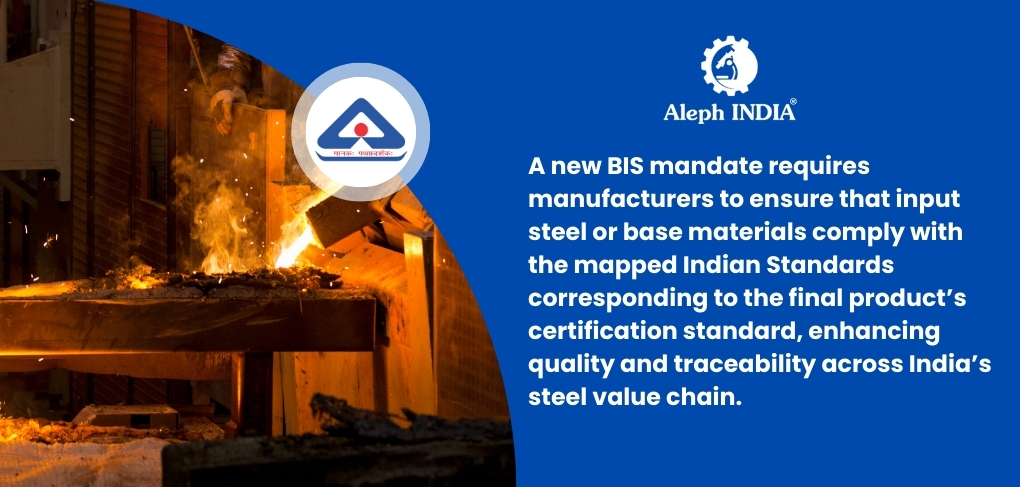- HOME
- ABOUT US
- SERVICES
-
LICENCE & CERTIFICATION
- BIS (ISI MARK) FOR FOREIGN MANUFACTURERS
- DOMESTIC PRODUCT CERTIFICATION (ISI MARK)
- BIS SCHEME X CERTIFICATION
- BIS CERTIFICATE OF CONFORMITY (CoC)
- BIS HALLMARKING
- REACH CERTIFICATION (GLOBAL)
- LABORATORY RECOGNITION SCHEME (LRS)
- WORLD MANUFACTURER IDENTIFIER (WMI) CODE
- ECO MARK
- TAC APPROVAL FOR AUTOMOBILE
- PESO CERTIFICATION
- SASO CERTIFICATION
- CDSCO CERTIFICATION
-
REGISTRATION
- BIS (CRS) REGISTRATION FOR ELECTRONIC PRODUCT
- WPC-ETA APPROVAL
- BEE CERTIFICATION
- E-WASTE MANAGEMENT (EPR)
- EPR REGISTRATION FOR PLASTIC WASTE MANAGEMENT
- EPR REGISTRATION FOR BATTERY WASTE MANAGEMENT
- EPR REGISTRATION FOR USED OIL
- LEGAL METROLOGY (LMPC)
- TEC/MTCTE APPROVAL
- CE CERTIFICATION
- UL CERTIFICATION
- ROHS LICENCE
- DRONE REGISTRATION
- MOEF LICENCE
-
AUXILIARY
- STANDARDIZATION (SCIENTIFIC) DIVISION
- TRAINING SERVICES (NATIONAL & INTERNATIONAL)
- IMPORT/EXPORT LICENCE
- FSSAI CERTIFICATION
- MSME/SSI/NSIC REGISTRATION
- ISO REGISTRATION
- BRAND REPRESENTATION
- LABORATORY EQUIPMENT AND SETUP
- TRADEMARK REGISTRATION
- MAKE IN INDIA SUPPORT
- AG-MARK LICENCE
- THIRD PARTY INSPECTION AND MONITORING SERVICES
-
- PORTFOLIO
- UPDATES
- CONTACT
- LOGIN
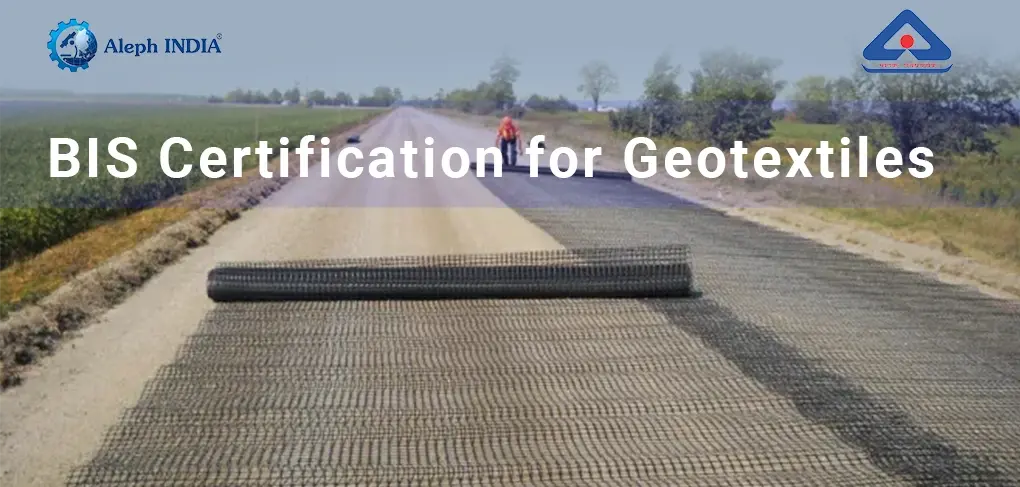
BIS Certification for Geotextiles
Geotextiles are one of the fastest growing sectors of the technical textile market, and they are expected to continue to grow. Geotextiles products have many applications and are currently used in many civil engineering applications such as roads, airfields, railroads, embankments, retaining structures, reservoirs, canals, dams, bank protection, coastal engineering, and construction site silt fences.
The increasing importance of geotextiles is due to their versatility based on their specific properties. Separation, filtration, reinforcement, and drainage are the four primary functions of geotextiles. These functions require that the geotextiles maintain their integrity over time and do not tear, split, or deteriorate under constructional or post-constructional stresses. BIS certification for geotextiles is required to ensure that geotextiles are of standard quality and better suited to carry out their primary function. All Geotextiles must comply with the applicable Indian standard and bear the standard mark under a license from the Bureau of Indian Standards. You can be sure that BIS-certified geotextile products are of high quality and meet Indian specifications.
Let’s first understand what is BIS and BIS license.
What is BIS?
Bureau of Indian Standards (BIS) is an Indian standard organization established under the BIS Act 2016 to manage, grade, and develop quality standards for consumer products. BIS is also responsible for marking and certifying goods to ensure the quality, stability, and reliability of the product for the end user. BIS operates various certification programs to ensure that the public receives high-quality, risk-free products.
BIS license: BIS runs a product certification scheme, also known as the ISI Mark certification scheme, to grant a BIS license to manufacturers. Under this scheme, the Bureau of Indian standard issues a BIS licence to the manufacturer to use the ISI mark on products that conform to applicable Indian standards. ISI-marked products guarantee that products meet the requirements of applicable Indian standards.
Manufacturers must obtain BIS certification for their products to use the standard mark and sell them in the Indian market. The BIS Certificate is only issued after verifying that the product meets all requirements of applicable Indian standards. To obtain a BIS Licence, all manufacturers must ensure that their product meets the requirements of all applicable Indian standards.
Benefits of obtaining BIS Certification:
Companies can benefit from BIS certification in the following ways:
- Gain consumer trust
- Ensure consumer health
- Ensure that the product is safe and out of physical harm.
- ISI mark is a mark of trust for buyers.
You learned about BIS Licence for geotextiles in the above paragraph. Now, you might be wondering how to get your product BIS certified.
Let's go over how to get BIS certifications for Geotextiles.
What is the Process of BIS certification for Geotextiles?
The process of BIS certification for Geotextiles is as follows:
- Documentation: If you want to obtain BIS certification for your Geotextiles product, you must prepare all necessary documents before submitting your application.
- Application Submission: Once all the relevant documents are prepared, the application form and supporting document will be submitted to the BIS Portal.
- Scrutiny of application: BIS officials will carefully review each and every document and application submitted.
- Audit of manufacturing premises: Following scrutiny, BIS will appoint an auditor to audit manufacturing premises. During the inspection of manufacturing premises, BIS officials will draw a sample and send it to a BIS-approved laboratory for testing.
- Sample testing: All samples collected will be tested in a BIS-approved laboratory to ensure that the product meets the requirements of applicable Indian standards.
- Grant of BIS Licence: If the product complies with the specified Indian standard, BIS will grant a BIS license to the manufacturer.
List of Geotextiles
Standardizing Geotextiles is critical because it is used in many civil engineering applications for separation, drainage, filtration, and reinforcement function. However, for its specification and performance requirements, the Bureau of Indian Standards has developed standards for Geotextiles, which are listed below:
| S.No. | Indian Standard | Title |
|---|---|---|
| 1 | IS 15351:2015 | Geotextiles - Laminated High-Density Polyethylene (HDPE) Woven Geomembrane for Water Proof Lining |
| 2 | IS 15909: 2015 | PVC Geomembranes for Lining |
| 3 | IS 16653: 2017 | Geosynthetics - Needle punched non-woven geobags for coastal and waterways protection |
| 4 | IS 16654: 2017 | Geosynthetics - Polypropylene Multifilament woven geobags for coastal and waterways protection |
| 5 | IS 14715 (Part 1):2016 | Jute Geotextiles Part 1 Strengthening of Sub-Grade in Roads |
| 6 | IS 14715 (Part 2):2016 | Jute Geotextiles Part 2 Control of Bank Erosion in Rivers |
| 7 | IS 15869: 2008 | Textiles - Open weave coir bhoovastra |
| 8 | IS 16391:2015 | Geosynthetics - Geotextiles Used in Sub-Grade Separation in Pavement Structures |
| 9 | IS 16393:2015 | Geosynthetics - Geotextiles Used in subsurface Drainage application |
| 10 | IS 16362: 2015 | Geosynthetics - Geotextiles used in subgrade stabilization in pavement structures |
| 11 | IS 16352: 2015 | Geosynthetics – High-Density Polyethylene (HDPE) Geomembranes for Lining |
| 12 | IS 16090:2013 | Geosynthetics - Geotextiles used as protection (or cushioning) materials |
| 13 | IS 16392:2015 | Geosynthetics - Geotextiles for permanent erosion control in hard armor systems |
| 14 | IS 17371:2020 | Geosynthetics - Geogrids for flexible pavements |
| 15 | IS 17372:2020 | Geosynthetics - Polymeric strip/geostrip used as soil reinforcement in retaining structures |
| 16 | IS 17373:2020 | Geosynthetics - Geogrids used in reinforced soil retaining structures |
| 17 | IS 17374:2020 | Geosynthetics - Reinforced HDPE membrane for effluent and chemical resistance lining |
| 18 | IS 17483 (Part 1):2020 | Geosynthetics – Geocells - specification part 1 load bearing application |
| 19 | IS 17483 (Part 2):2020 | Geosynthetics - Geocells – specification part 2 slope erosion protection application |
Documents Required to get BIS certification in India
Documents required for BIS Certification are very specific and generic, which include:
- Laboratory Test Reports as per Product Standard
- Factory Registration Documents
- Manufacturing process flow chart
- In-house Testing Facilities
- Details of Authorised Signatory and other related documents
What is the BIS certification cost for Geotextile products?
BIS certification costs include:
- Application fee
- Audit fee
- Sample testing fee
- License fee
- Marking fee
It also required investment in factory facilities, particularly in installing testing machinery for in-house factory test labs.
Validity and Renewal of BIS Licence
BIS license is initially granted for not less than one year and up to two years. A renewal application and license fee must be submitted within 90 days of the license's expiration date. BIS license may be renewed for at least one year and up to five years, depending on whether the application fee, licence fee, advance minimum marking fee, and dues, if any, have been paid along with the renewal application for the requested duration. The licence will expire if the licensee does not submit a renewal application and pay the required fee within 90 days of the license's expiration date.
Conclusion:
Geotextiles are increasingly being used in civil engineering applications. However, greater emphasis should be placed on its quality standards because of its application. To ensure that geotextiles are of high quality and use the standard mark, all geotextile manufacturers must obtain BIS certification for their geotextiles, such as Geosynthetics- Polypropylene Multifilament, Jute geotextiles, Textiles, Geosynthetic etc.
All products must be BIS certified to ensure that they meet Indian standards and are safe and reliable for customers. However, compliance can be tricky. Obtaining BIS certification is not as simple as it first seems because it requires cooperation with authorities, sample collection and testing, and fulfilling BIS requirements. That’s why It is best to seek expert help so that they can handle the entire process and assist you in obtaining a BIS certificate.
Aleph India is a one-stop solution for all your compliance requirements. Aleph India provides a single window for product testing, training, technical certification, auditing, laboratory setup, and technical compliance services to the manufacturer and importer. Our Expert will assist you in getting your product tested and approved, providing useful insight and advice at every step of the process, from standard testing compliance to extensive documentation required for BIS certification.


